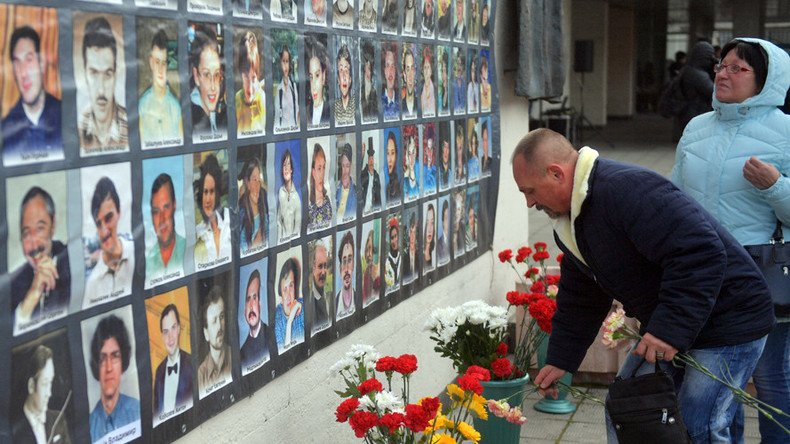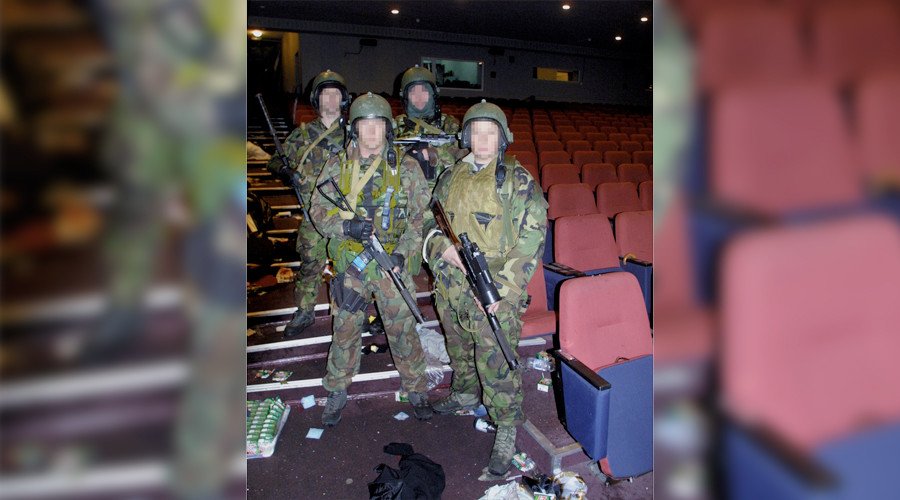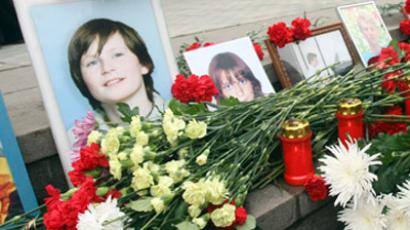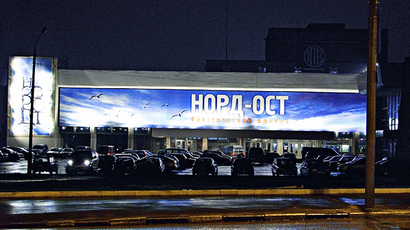Russia mourns victims of deadly Nord-Ost theater attack

A ceremony has been held in Moscow to commemorate the 130 victims of the hostage crisis that took place during the Nord Ost show in the Dubrovka Theater in 2002.
Attendees brought flowers and candles to the wall of the theater, where photos were displayed of the victims. They also released 130 white balloons into the air – one for each of the people who died during the siege.
Lower House MP and famous Russian singer Iosif Kobzon who risked his life 15 years ago by engaging terrorists in talks and persuading them to free several hostages, took part in the memorial events.
It was the 15th anniversary of the Nord Ost attack, in which a group of around 40 terrorists, some of whom were women wearing explosive belts, entered the Dubrovka Theater during a musical show and took about 900 people hostage, including many children.
The terrorists, headed by Chechen warlord Movsar Barayev, demanded that Moscow remove all of its troops from the territory of Chechnya. After three days of negotiations, Russian security officials decided that compromise was impossible, and special units of the Interior Ministry and the Federal Security Service stormed the theater building.
In advance of the assault, sleeping gas was pumped into the building’s ventilation systems in an effort to prevent those wearing explosive belts from detonating them. No bombs were detonated and almost all terrorists, including their leader, were killed soon after troops entered the building. However, the gas also poisoned the hostages. 119 of 130 victims of the hostage crisis died in hospital as a result of their exposure to the gas.

A police investigation sought to identify individuals who had aided the terrorists. In 2003, a court in Moscow found one such accomplice, Zaurbek Talkhigov, guilty of assisting a terrorist attack and hostage taking, sentencing him to eight-and-a-half years in prison.
The following year, a Moscow policeman was tried for illegally providing one of the terrorists with documents that allowed her to reside in the Russian capital without coming to the attention of security agencies.
In 2014, another accomplice who assisted the terrorists, Khasan Zakayev, was detained in Crimea, before being tried and sentenced to 19 years for providing weapons and explosives to Zakayev’s group.
The hostage crisis, now commonly referred to by the name of the show Nord Ost, remains one of the most controversial tragedies in modern Russian history. Critics blame the special services for the deaths of hostages – because of the failed talks with terrorists, the careless use of sleeping gas, and their failure to brief ambulance doctors about its nature and effects.
However, others accept that deployment of the gas was the only option against the heavily armed suicide squad, and claim that the hostages’ condition was aggravated by severe stress and inadequate food and water.
In 2003, Moscow city authorities erected a memorial to the victims of the Nord Ost attack and other acts of terrorism near the theater. In 2012, a wooden chapel was built near the site of the tragedy and, in 2015, a Russian Orthodox Church of Saints Cyril and Methodius was opened nearby.














